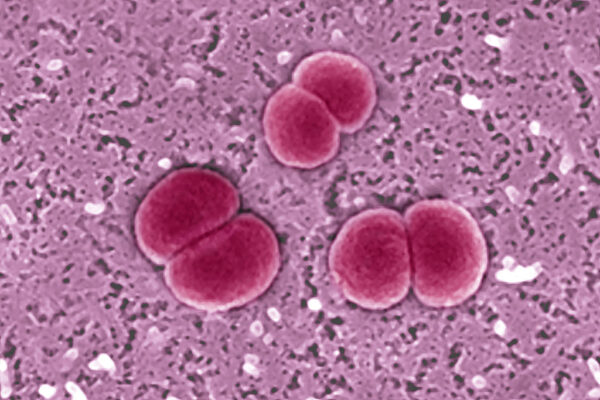
The FDA has approved a new Pfizer meningococcal vaccine whose simpler dosing schedule is expected to make it easier for children and young adults to get fully vaccinated to protect against a rare infection that can quickly become fatal within 24 hours.
Five groups of Neisseria meningitidis bacteria are the most common cause of meningococcal disease, which causes infections of the lining of the brain and spinal cord as well as the blood. For those who survive serious cases of the infection, the effects can still be long lasting.

With the Rise of AI, What IP Disputes in Healthcare Are Likely to Emerge?
Munck Wilson Mandala Partner Greg Howison shared his perspective on some of the legal ramifications around AI, IP, connected devices and the data they generate, in response to emailed questions.
Pfizer already had four of the culprit bacterial groups covered with a vaccine called Nimenrix. Another Pfizer vaccine called Trumenba covers the fifth group of bacteria. Penbraya, the meningococcal vaccine approved by the FDA on Friday, combines Nimenrix and Trumenba in a single shot. The regulatory decision covers use of this new vaccine in those ages 10 through 25. Penbraya is administered as two intramuscular injections given six months apart.
Penbraya is a bacterial vaccine. It works by what’s called active immunization, in which the immune system is prompted to produce antibodies against target pathogens. FDA approval of the new Pfizer vaccine is based on the results of clinical trials that compared Penbraya to currently available meningococcal vaccines. Results showed this vaccine was “noninferior,” meaning it was not worse at eliciting an immune response versus the comparator vaccines.
“In a single vaccine, Penbraya has the potential to protect more adolescents and young adults from this severe and unpredictable disease by providing the broadest meningococcal coverage in the fewest shots,” Annaliesa Anderson, senior vice president and head, vaccine research and development at Pfizer, said in a prepared statement.
The Phase 3 study for Penbraya enrolled more than 2,400 patients from the U.S. and Europe. The most common adverse reactions were pain at the injection site, fatigue, headache, injection site redness, muscle pain, injection site swelling, joint pain, and chills. The vaccine’s label also cautions that Guillain-Barré syndrome, an immune response that damages nerves, has been reported after dosing of other meningococcal vaccines.
The next step for Penbraya is a recommendation from the Centers for Disease Control and Prevention’s Advisory Committee on Immunization Practices. This vaccine is the first agenda item for the committee’s next meeting, scheduled for this Wednesday.
Pfizer isn’t the only company trying to offer protection against meningococcal infection with fewer shots. GSK’s pentavalent meningococcal vaccine candidate is a combination of that company’s approved vaccines, Bexsero and Menveo. In March of this year, the British pharmaceutical giant reported Phase 3 results showing this vaccine candidate, administered as two doses six months apart, was non-inferior to the two approved GSK meningococcal vaccines.
Photo: BSIP/Universal Images Group, via Getty Images














